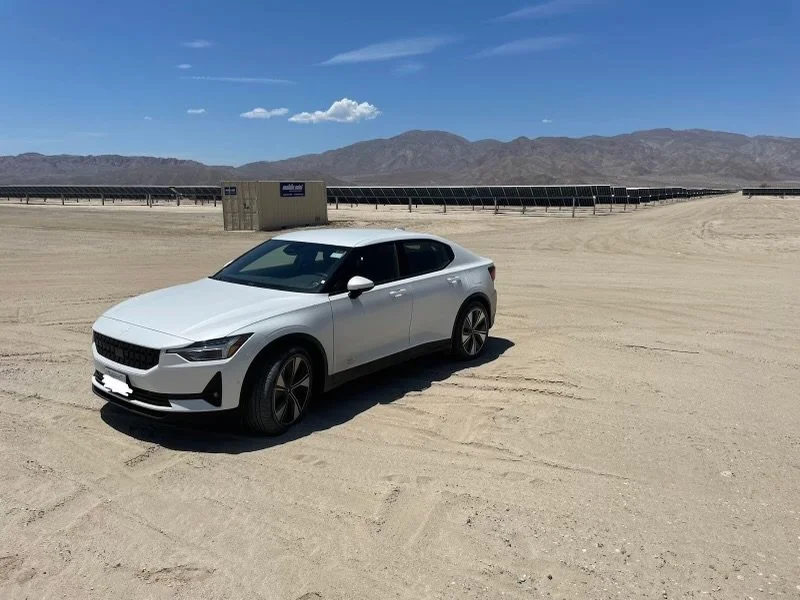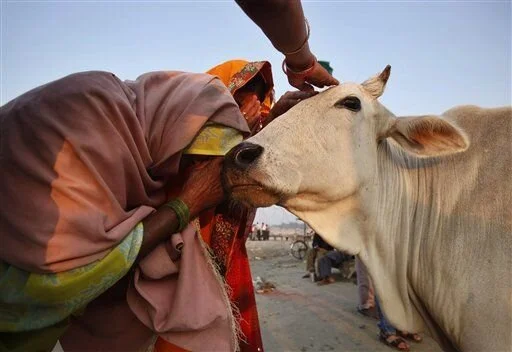Settler colonial policies aimed at prohibiting Indigenous controlled burnings have left dry land throughout California ripe for powerful wildfires.
Read MoreStay informed about the environment this election! Lily Zufall breaks down the climate policies of Donald Trump and Kamala Harris so you know who to vote for.
Read MoreEditor Lula Fox reveals the environmental devastation wrought by Israel’s invasion of the Gaza Strip.
Read MoreAuthor Lindsey Nickel breaks down the climate policies of the Trump and Biden administrations to find out which president is really better for the environment.
Read MoreThis article by Rachel Yoon delves into the paradox of sustainability in pregnancy products, highlighting the exploitation of maternal anxieties by companies through greenwashing tactics.
Read MoreIn recent years, the palm has been insulted. It’s been clumped.
Read MoreNorthwestern offers a wide range of environmental-related courses. With such a varied and vast course list, it can be hard to determine what environmental classes are the best ones to take. The wide range of factors to consider like workload, professor teaching style, and content make narrowing down the list difficult even with CTECs. I’ll be discussing some characteristics of these classes and my personal experiences with them.
Read MoreCancel culture, which once started as a movement of accountability, has overgrown into a mangled mess of self-censorship, perfectionism, and fear of speaking out. Due to this dynamic, I’ve personally noticed an increase in inauthentic online environmental activism in hopes of self-preservation, of being “on the right side,” even if they don’t know or really care about what they're posting.
Read More“Internet vegans”, social media influencers who create platforms promoting their lifestyle choices, argue that eating any animal products is immoral, and only by going vegan can someone truly be environmentally conscious. While many vegans do not share these views, the rhetoric of these extreme vegans who argue that non-vegans are immoral is extremely problematic for a wide range of reasons. Hannah Dembosky shares her opinion.
Read MoreEvery year, homeowners spend countless hours of their spring and summer de-weeding their yards, attempting to get rid of those little yellow flowers that children make a wish on. But why are dandelions so despised? Danielle Johnson shares her opinion.
Read MoreIn this piece coordinated by In Our Nature’s Carlyn Kranking, a few students share their experiences with the first environmental courses they took at Northwestern University, and what impact these courses had.
Read MoreDo animals have moral standing? How do cultures around the world perceive animals differently and what implications does this have on the way we should be treating them? Find out in Emma Belanger’s eye-opening article.
Read MoreDespite falling air pollution and carbon dioxide levels as millions across the world are placed under lockdown, our planet is hardly a beneficiary of the coronavirus outbreak, Ginny Ip explains. Read more to find out why.
Read MoreCan the Mauna Kea protests bring us closer to nature? Read here about Hannah Hall’s trip to Hawaii and learn more about Mauna Kea and its protectors.
Read MoreTo most people, especially college students, adopting a completely zero-waste lifestyle seems next to impossible. Fortunately, Danielle Johnson shares that the best way to do zero-waste is to do it ‘imperfectly,’ provided that more people start doing it. Find out why in her newest ECOpinion.
Read MoreWhile climate change was previously regarded as of secondary importance next to economic development and pressing social issues, the Chinese government has placed environmental concerns at the top of its agenda in recent years, taking serious steps to promote clean renewable energy technology and enforce environmental laws.
Read MoreWhat is the relationship between women and the natural world? Is there a connection between the exploitation and degradation of the environment and the subordination and oppression of women? In her fascinating article, Emma Belanger explores the intersections between gender and ecology, and what it means to be a female environmentalist today.
Read MoreWhat will the year 2100 look like if the Earth gets 2°C warmer, according to current predictions? In her debut piece, Madison Fielder paints a harrowing picture of an immediate future that will be our reality only if leaders take action now.
Read MoreWhat sets apart animals in Evanston from those in more rural areas? Are urban animals more intelligent than their backwoods, hippie counterparts? Find out in Emma Belanger’s creative nonfiction piece.
Read More


















